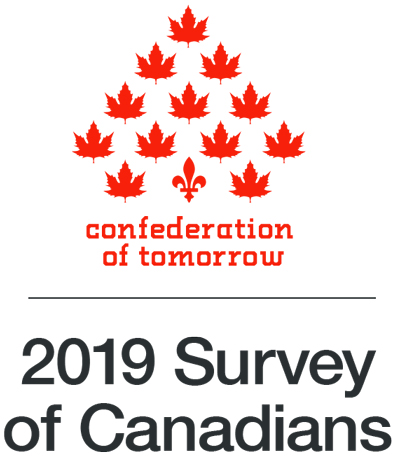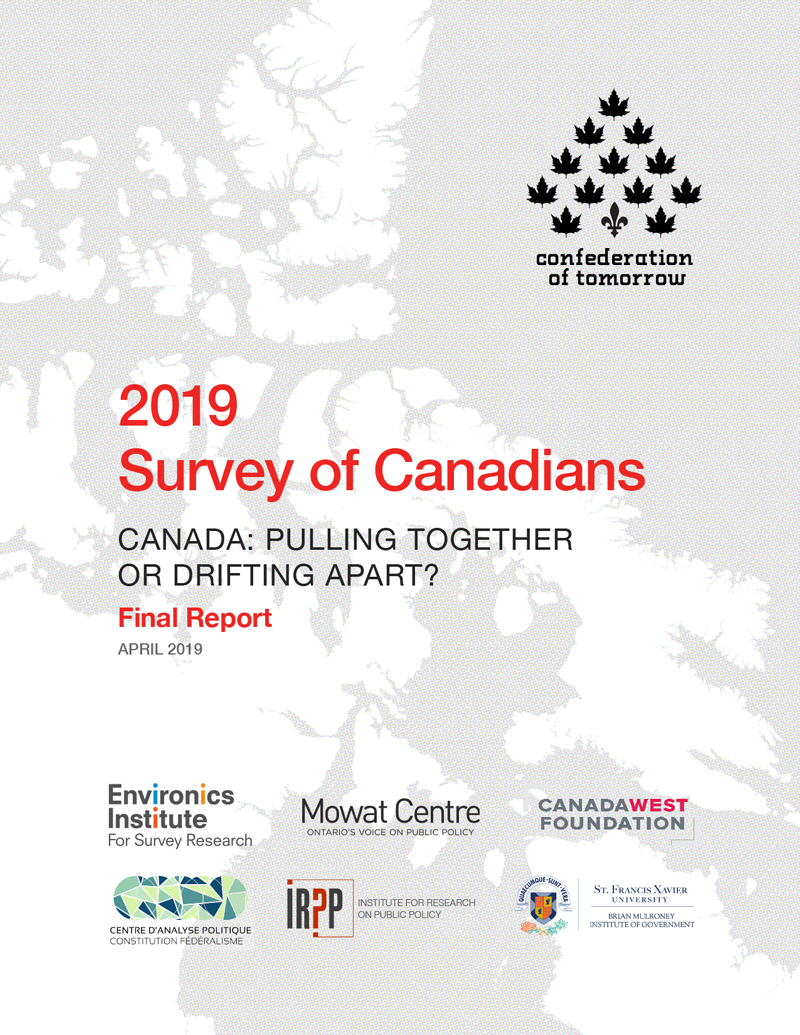March 22, 2019
2019 Survey of Canadians
Are Canadians pulling together or drifting apart as a nation? This is the focus of the first report analyzing the findings of the Confederation of Tomorrow 2019 Survey of Canadians.
The report gives particular focus to Canadians’ perception of their place in the federation. It finds that Canadians’ views on this vary widely across jurisdictions. But these differences do not easily map onto “regions” within Canada, as views and trends on this issue vary not only across regions, but among neighbouring provinces and territories within regions as well.
Moreover, a sense of shared values persists in Canada. And while the results of this survey clearly show deep divisions across the country on how federalism is working, there is also widespread agreement that a federal-type system is best given Canada’s diversity. Nonetheless, Canadians’ confidence in the country’s capacity to resolve differences is much lower than in 1977.
The survey was conducted online in December 2018 – January 2019 with a representative sample of 5,732 Canadians (18 years and older), stratified to provide for meaningful results in all 13 provinces and territories, as well as Indigenous Peoples across the country.
View Report on Environics website
Authors
Environics Institute for Survey Research
The Mowat Centre
The Canada West Foundation
Le Centre D’analyse Politique – Constitution Et Fédéralisme (CAP-CF)
The Institute for Research on Public Policy
The Brian Mulroney Institute of Government
Release Date
March 22, 2019

2019 Survey of Canadians
How are Canadians today viewing the federation? Six leading research organizations from across the country have come together to conduct one of the country’s largest and more comprehensive studies of public opinion about the Canadian federation. The survey of 5,732 Canadians provides a unique window into the attitudes and priorities of Canadians in all 13 provinces and territories, as well as an oversample of Indigenous Peoples (First Nations, Métis and Inuit). Many of the questions included on the survey were drawn from previous national surveys stretching back to the 1980s, providing a valuable basis for understanding how public opinion has changed (or not) over time.
More







